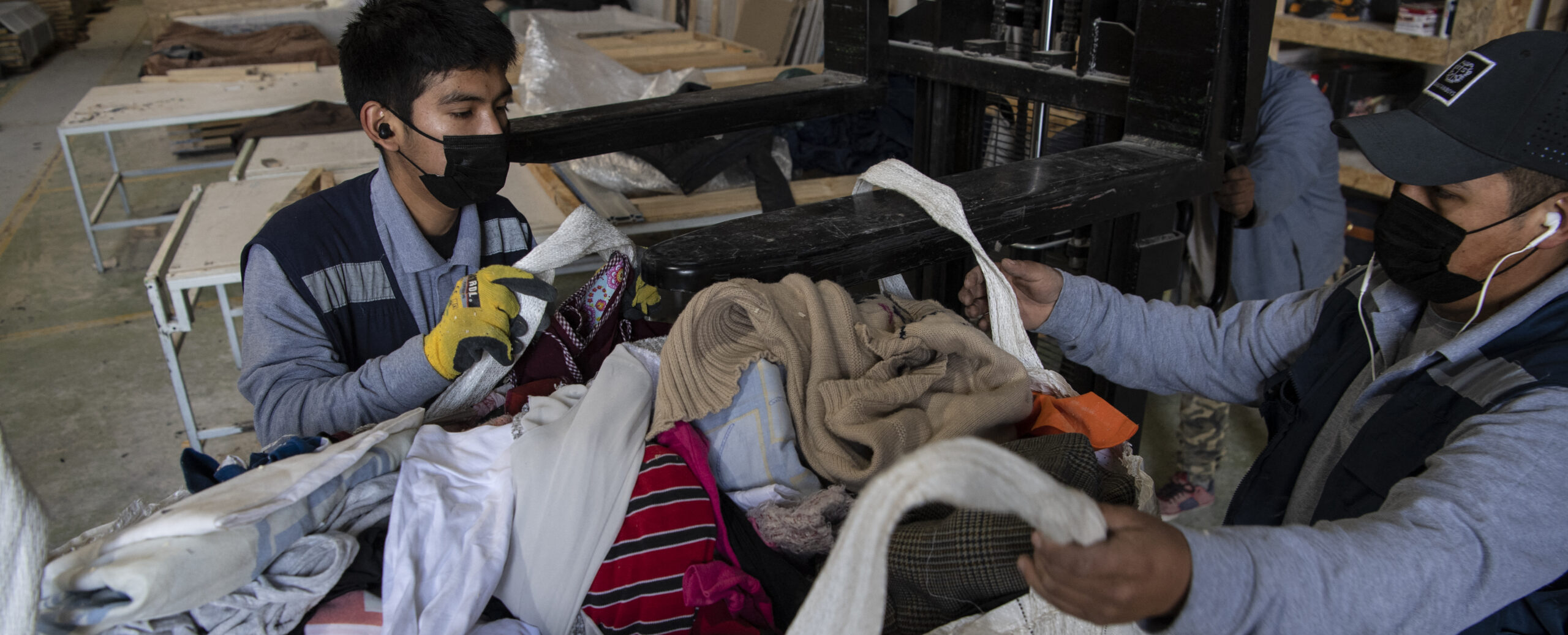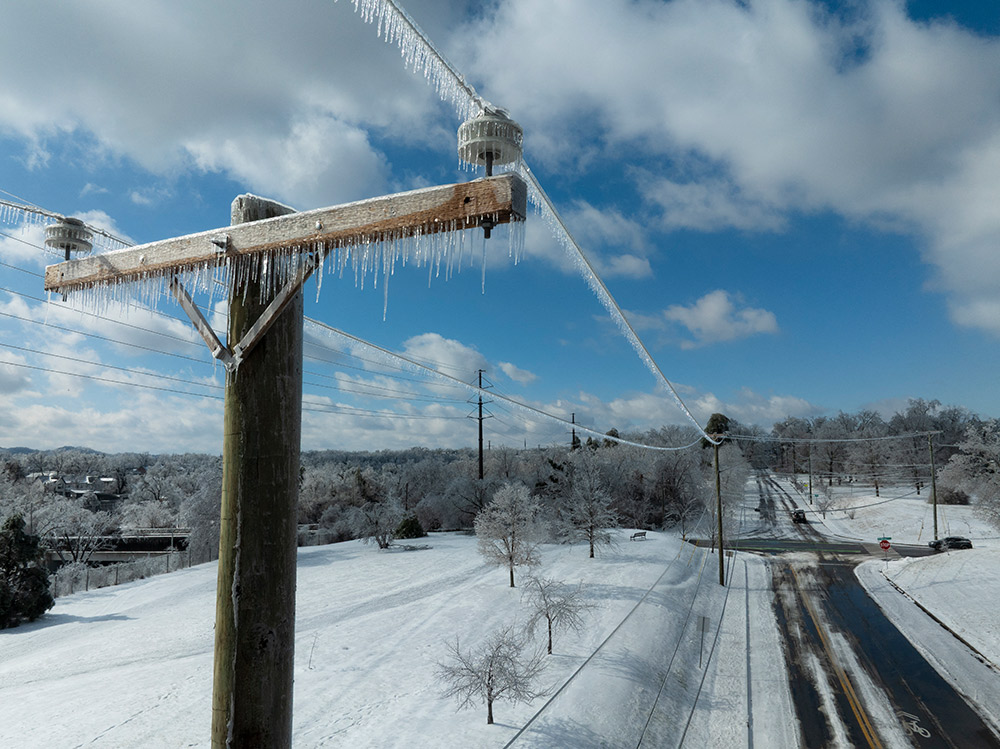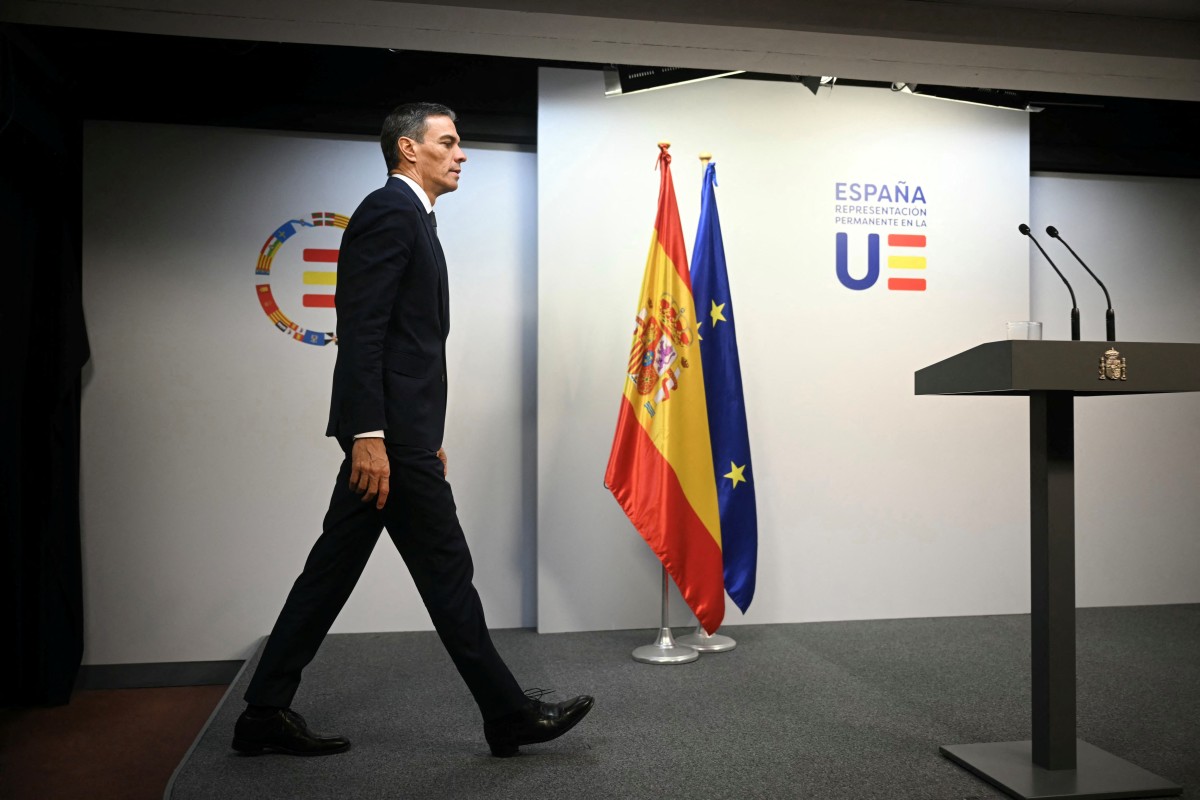International
Chile’s desert dumping ground for fast fashion leftovers

AFP
A mountain of discarded clothing including Christmas sweaters and ski boots cuts a strange sight in Chile’s Atacama, the driest desert in the world, which is increasingly suffering from pollution created by fast fashion.
The social impact of rampant consumerism in the clothing industry — such as child labor in factories or derisory wages — is well-known, but the disastrous effect on the environment is less publicized.
Chile has long been a hub of secondhand and unsold clothing, made in China or Bangladesh and passing through Europe, Asia or the United States before arriving in Chile, where it is resold around Latin America.
Some 59,000 tons of clothing arrive each year at the Iquique port in the Alto Hospicio free zone in northern Chile.
Clothing merchants from the capital Santiago, 1,800 kilometers (1,100 miles) to the south, buy some, while much is smuggled out to other Latin American countries. But at least 39,000 tons that cannot be sold end up in rubbish dumps in the desert.
“This clothing arrives from all over the world,” Alex Carreno, a former employee in the port’s import area, told AFP.
“What is not sold to Santiago nor sent to other countries stays in the free zone” as no one pays the necessary tariffs to take it away.
“The problem is that the clothing is not biodegradable and has chemical products, so it is not accepted in the municipal landfills,” said Franklin Zepeda, the founder of EcoFibra, a company that makes insulation panels using discarded clothing.
“I wanted to stop being the problem and start being the solution,” he told AFP about the firm he created in 2018.
– Water waste –
According to a 2019 UN report, global clothing production doubled between 2000 and 2014, and the industry is “responsible for 20 percent of total water waste on a global level.”
To make a single pair of jeans requires 7,500 liters (2,000 gallons) of water.
The same report said that clothing and footwear manufacturing contributes eight percent of global greenhouse gases, and that “every second, an amount of textiles equivalent to a garbage truck is buried or burnt.”
Whether the clothing piles are left out in the open or buried underground, they pollute the environment, releasing pollutants into the air or underground water channels.
Clothing, either synthetic or treated with chemicals, can take 200 years to biodegrade and is as toxic as discarded tires or plastics.
Not all the clothing goes to waste: some of the poorest people from this region of 300,000 inhabitants pick through the dumps to find things they need or can sell in their local neighborhood.
Venezuelan migrants Sofia and Jenny, who crossed into Chile only a few days earlier on a 350-kilometer journey, search through a clothing pile as their babies crawl over it.
The women are looking for “things for the cold,” given the desert’s nighttime temperatures drop to levels unheard of in their tropical homeland.
– Changing attitudes –
Chile, the richest country in South America, is known for the voracious consumerism of its inhabitants.
Fast fashion advertising “has helped to convince us that clothing makes us more attractive, that it makes us stylish and even cures our anxiety,” said Monica Zarini, who makes lamp shades, notebooks, containers and bags from recycled clothing.
Things are changing, though, according to Rosario Hevia, who opened a store to recycle children’s clothes before founding in 2019 Ecocitex, a company that creates yarn from pieces of discarded textiles and clothing in a poor state. The process uses neither water nor chemicals.
“For many years we consumed, and no one seemed to care that more and more textile waste was being generated,” she said.
“But now, people are starting to question themselves.”
International
Winter Storm Fern Leaves 30 Dead and Over One Million Without Power Across the U.S.

The massive winter storm Fern, bringing polar temperatures, battered large portions of the United States for a third consecutive day on Monday, leaving at least 30 people dead, more than one million households without electricity, and thousands of flights grounded.
In the Great Lakes region, residents awoke to extreme cold, with temperatures dropping below -20°C. Forecasts indicate that conditions are expected to worsen in the coming days as an Arctic air mass moves south, particularly across the northern Great Plains and other central regions, where wind chills could plunge to -45°C, temperatures capable of causing frostbite within minutes.
Across the country, heavy snowfall exceeding 30 centimeters in roughly 20 states triggered widespread power outages. According to PowerOutage.com, nearly 800,000 customers remained without electricity on Monday morning, most of them in the southern United States.
In Tennessee, where ice brought down power lines, approximately 250,000 customers were still without power. Outages also affected more than 150,000 customers in Mississippi and over 100,000 in Louisiana, as utility crews struggled to restore service amid dangerous conditions.
International
Spain approves plan to regularize up to 500,000 migrants in Historic Shift

In November 2024, Spanish Prime Minister Pedro Sánchez announced a reform of the country’s immigration regulations aimed at regularizing 300,000 migrants per year over a three-year period, in an effort to counter population aging in a country where births have fallen by 25.6% since 2014, according to official data.
Going against the trend in much of Europe, Spain’s left-wing government has now approved an exceptional migrant regularization plan that could benefit up to 500,000 people, most of them from Latin America.
The measure will allow the regularization of around “half a million people” who have been living in Spain for at least five months, arrived before December 31, 2025, and have no criminal record, Migration Minister Elma Saiz explained on public television.
The plan, approved on Tuesday by the Council of Ministers, establishes that applications will be processed between April and June 30, enabling beneficiaries to work in any sector and anywhere in the country, Saiz said.
“Today is a historic day for our country. We are strengthening a migration model based on human rights, integration, and one that is compatible with economic growth and social cohesion,” the minister later stated at a press conference.
The socialist government of Pedro Sánchez stands out within the European Union for its migration policy, contrasting with the tightening of immigration measures across much of the bloc amid pressure from far-right movements.
Central America
Honduras swears in conservative president Asfura after disputed election

Conservative politician Nasry Asfura assumed the presidency of Honduras on Tuesday with an agenda closely aligned with the United States, a shift that could strain the country’s relationship with China as he seeks to confront the economic and security challenges facing the poorest and most violent nation in Central America.
Asfura’s rise to power, backed by U.S. President Donald Trump, marks the end of four years of left-wing rule and secures Trump another regional ally amid the advance of conservative governments in Chile, Bolivia, Peru, and Argentina.
The 67-year-old former mayor and construction businessman was sworn in during an austere ceremony at the National Congress, following a tightly contested election marred by opposition allegations of fraud and Trump’s threat to cut U.S. aid if his preferred candidate did not prevail.
Grateful for Washington’s support, Asfura—who is of Palestinian descent—traveled to the United States to meet with Secretary of State Marco Rubio, before visiting Israeli Prime Minister Benjamin Netanyahu.
“We need to strengthen relations with our most important trading partner,” Asfura said after being declared the winner of the November 30 election by a narrow margin, following a tense vote count that lasted just over three weeks.
-

 Central America2 days ago
Central America2 days agoGuatemala seizes over a ton of cocaine hidden in flour at Pacific port
-

 Central America4 days ago
Central America4 days agoGuatemala’s president rules out negotiations with inmates after prison riots
-

 International4 days ago
International4 days agoTrump-Era Defense Plan Prioritizes Border Security and Scales Back Global Commitments
-

 Internacionales4 days ago
Internacionales4 days agoMajor winter storm threatens “catastrophic” ice and snow across much of the U.S.
-

 International4 days ago
International4 days agoBogotá and Quito Seek Dialogue After Tariffs and Power Cut Escalate Tensions
-

 International3 days ago
International3 days agoDelcy Rodríguez seeks political agreements after Maduro’s ouster
-

 International4 days ago
International4 days agoGuatemala considers sending high-risk gang members to military prisons
-

 International2 days ago
International2 days agoHistoric snowstorm paralyzes Toronto after 60 centimeters of snow
-

 International2 days ago
International2 days agoSpain’s irregular migrant population rises to 840,000, study finds
-

 International3 days ago
International3 days agoFederal immigration agents kill man in Minneapolis, sparking protests and outrage
-

 Central America12 hours ago
Central America12 hours agoGuatemala Police Arrest Prison Guard Caught in the Act of Extortion
-

 International4 days ago
International4 days agoRights group says over 5,000 killed in Iran protests, mostly civilians
-

 International12 hours ago
International12 hours agoWinter Storm Fern Leaves 30 Dead and Over One Million Without Power Across the U.S.
-

 International12 hours ago
International12 hours agoDoomsday clock moves to 85 seconds before midnight amid rising global risks
-

 International2 days ago
International2 days agoRights group says nearly 6,000 killed in Iran protest crackdown
-

 Sin categoría12 hours ago
Sin categoría12 hours agoEight Killed in Series of Armed Attacks in Ecuador’s Manabí Province
-

 Central America12 hours ago
Central America12 hours agoBukele leads public trust rankings as UCA survey highlights gains in security
-

 International2 days ago
International2 days agoVenezuela frees at least 80 political prisoners, NGO says
-

 Central America12 hours ago
Central America12 hours agoHonduras swears in conservative president Asfura after disputed election
-

 International12 hours ago
International12 hours agoSpain approves plan to regularize up to 500,000 migrants in Historic Shift
-

 International2 days ago
International2 days agoEU launches new probe into X over AI-generated fake nude images
-

 Sin categoría12 hours ago
Sin categoría12 hours agoEl Salvador Launches Fourth Year of Ocean Mission to Protect Marine Ecosystems
-

 International2 days ago
International2 days agoSevere winter storm grips U.S., leaves multiple dead as extreme cold persists
-

 International2 days ago
International2 days agoFrance debates ban on social media for children under 15


























